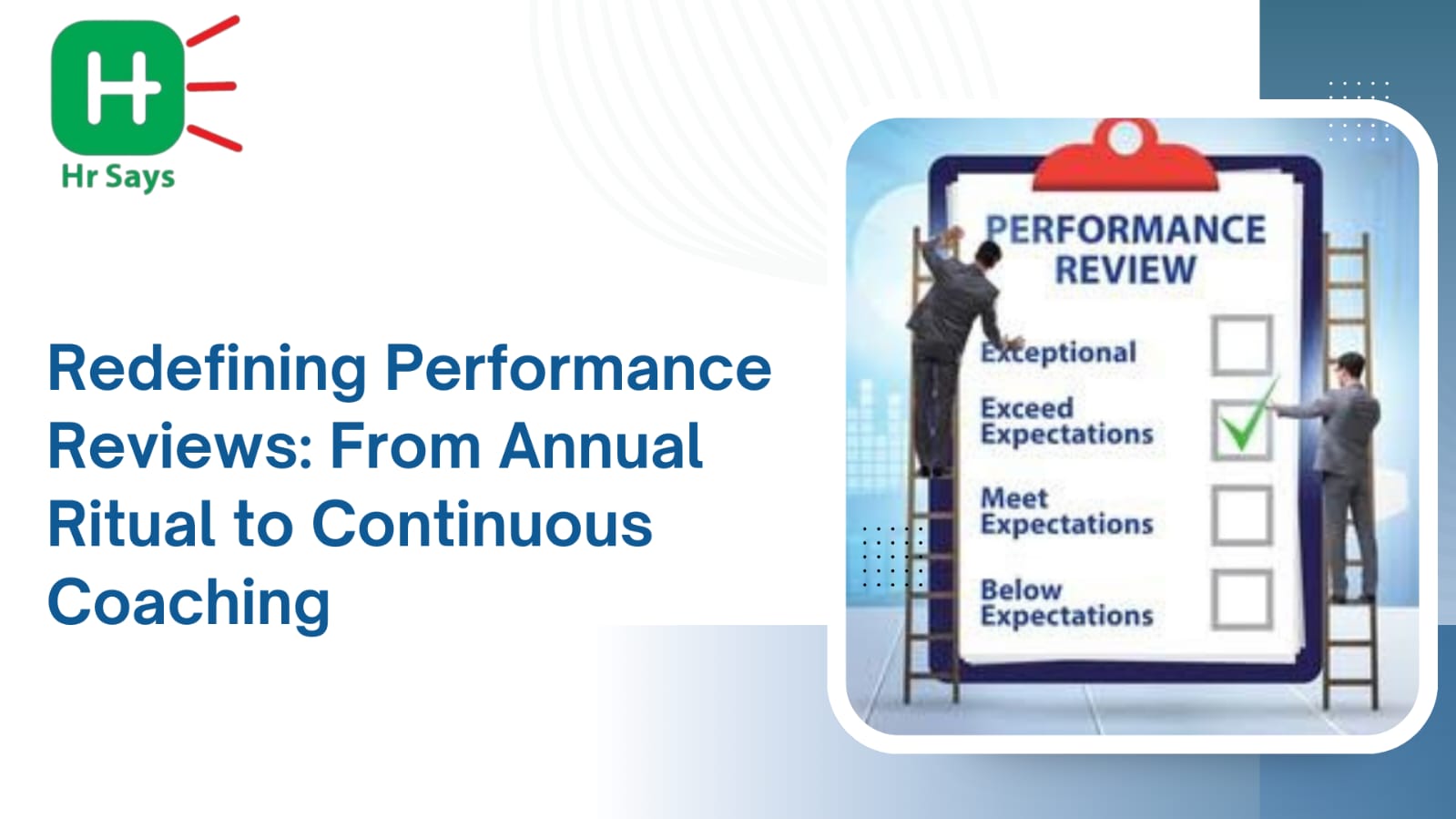Why do performance reviews feel more like a courtroom than a conversation? For decades, they’ve been dreaded. Once a year. Always rushed. Never enough. But things are changing. Slowly. And not without resistance.
The Old Way Felt Broken
Most reviews were delayed reactions. Employees waited. Managers struggled to recall. Boxes were ticked. Real issues ignored. Growth felt like an afterthought.
Performance was rated—not improved. And feedback came when it was too late to fix things.
Employees felt unheard. Managers felt burdened. The system, outdated.
The Shift: From Ritual to Rhythm
Now, something better is being shaped. Continuous feedback. Regular check-ins. Coaching moments. It’s not flashy—but it works.
What’s changing?
● Feedback is timely – given close to the action, not six months later.
● Conversations are casual – no more formal forms and stiff meetings.
● Goals are evolving – no longer fixed for 12 months. Adaptation is key.
● Growth is central – not just ratings, but what comes after them.
This doesn’t mean managers talk more. It means they listen better.
Coaching Over Criticism
Coaching isn’t soft. It’s strategic. It’s about asking, not telling. Helping people find answers—not giving all of them.
Employees aren’t just told what’s wrong. They’re asked what they need. The tone is different.
The outcomes stronger.
When coaching is done right:
● People feel supported
● Confidence grows
● Small issues don’t pile up
● Performance becomes proactive, not reactive
Yes, it takes effort. Yes, it needs training. But it works.
Tech is Helping—but Not the Hero
HR software now tracks goals, sends nudges, stores feedback. AI tools suggest coaching
prompts or flag issues early. But tech can’t fix culture. It only reflects it.
The shift has to come from people—especially managers.
Why This Matters Now
Work is changing. So are expectations. Younger employees want clarity, not silence. Remote
teams need regular touchpoints. Annual reviews don’t serve this world anymore.
And in uncertain times, trust matters more than ratings.
Conclusion
Performance reviews were once seen as necessary. Now, they’re being reimagined as useful.
Not by adding bells and whistles—but by making them human again.
From judgment to dialogue. From stress to support. From once a year to every day.
That’s how performance grows.
And maybe, that’s how people stay.

 Annual reviews are losing relevance. A shift is underway—from one-time feedback to real-time coaching. The goal isn’t just to rate performance anymore. It’s to support, guide, and grow—through conversations, not checklists.
Annual reviews are losing relevance. A shift is underway—from one-time feedback to real-time coaching. The goal isn’t just to rate performance anymore. It’s to support, guide, and grow—through conversations, not checklists.








.jpeg)
.jpeg)

.jpeg)





.jpeg)



.jpeg)

.jpeg)



